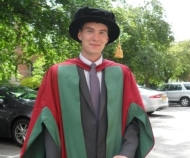Cllr. Ketan Sheth
As Chair of the Community and Wellbeing Scrutiny Committee at Brent Council, Cllr. Sheth has a behind the scenes look at the workings of local government. Here he shares his experience in trying to improve Brent’s mental health provision and his views on what good local authority overview and scrutiny looks like.
One in four people will experience mental ill health at some point in their lives – so it is likely all of us will directly or indirectly need support from the valuable services that support people to recover and to remain resilient.
Mental health – a once under-reported and some would say under-valued aspect of our health and wellbeing – has been making headlines recently and is a stated national priority. Earlier this year the Prime Minister announced plans to transform mental health services with a particular focus on children and young people. This was subsequently followed by an announcement last month by the Health Secretary of a plan to create 21,000 new posts, investing £1.3bn by 2020. Again, the commitment to mental health services for children and young people was affirmed.
This brings a welcome focus given children and young people’s mental health and wellbeing can ultimately shape their life chances and outcomes. So now we must think about how we – as a local authority overview and scrutiny committee – understand what is going on behind the headlines and – as elected councillors – continue to shine the spotlight locally.
Scrutiny work that adds a real value and makes a positive difference to local residents’ lives must remember a number of important factors: are elected councillors supported to carry out a meaningful review? Do they understand how to capture the service model? Do they understand how to draw out the challenges to effective delivery of that model? Do they have the tools and information they need to be responsive local decision makers?
In Brent, my Community and Wellbeing Scrutiny Committee recently went behind those headlines to better understand mental health provision for children and young people across Brent and to see how we might add value to the current service model. A Task and Finish Group on Child and Adolescent Mental Health Services (CAMHS) was set up to review this complex area, and their report makes for very interesting read.
The task group was put in place to gather evidence – qualitative evidence from face-to-face interviews and research, and quantitative data and this was done alongside NHS Brent CCG, local health providers, schools and further education representatives and community representatives. I want to highlight two things my committee learnt in undertaking this work.
Firstly, the involvement of young people in this research was vital. Let’s face it, elected councillors in a local authority tend to be far older than the demographic we were seeking to reach, so it was incredibly helpful to have the input and perspectives of young people. We appointed a former member of Brent Youth Parliament (now a student at King’s College London) and they brought an excellent viewpoint to the task group’s work and deliberations.
Secondly, it was essential we recognised and embraced the complexity of this area. CAMHS is a complex and challenging subject for overview and scrutiny members because it cuts across local government and health responsibilities. Whilst this is excellent news for integrated care, it means you must be able to grasp and work across a range of people and organisations. You must also recognise the child or young person and their family and carers are a vital part of this system and network of care, and understand their perspective as well.
Effective scrutiny can be a powerful vehicle for change if committee members can stand back and really understand what is happening across local government and health services. If we are honest, overview and scrutiny committees nationally have varying relationships with public sector colleagues; however, in Brent, my committee’s relationship with NHS Brent CCG and wider health services is a good one. We try to be constructive and fair in forming our recommendations, especially in areas where we think things could be done differently and outcomes could be improved.
We have now made our recommendations to the Brent Council Cabinet and NHS colleagues and will monitor progress as a result. In Brent we will ensure mental health for adults and children and young people remains on the agenda, irrespective of the headlines.
To read the CAMHS task group report, visit http://www.brent.gov.uk/scrutiny.

Cllr. Ketan Sheth is a Councillor for Tokyngton, Wembley in the London Borough of Brent. Ketan has been a councillor since 2010 and was appointed as Brent Council’s Chair of the Community and Wellbeing Scrutiny Committee in May 2016. Before his current appointment in 2016, he was the Chair of Planning, of Standards, and of the Licensing Committees. Ketan is a lawyer by profession and sits on a number of public bodies, including as the Lead Governor of Central and North West London NHS Foundation Trust.
